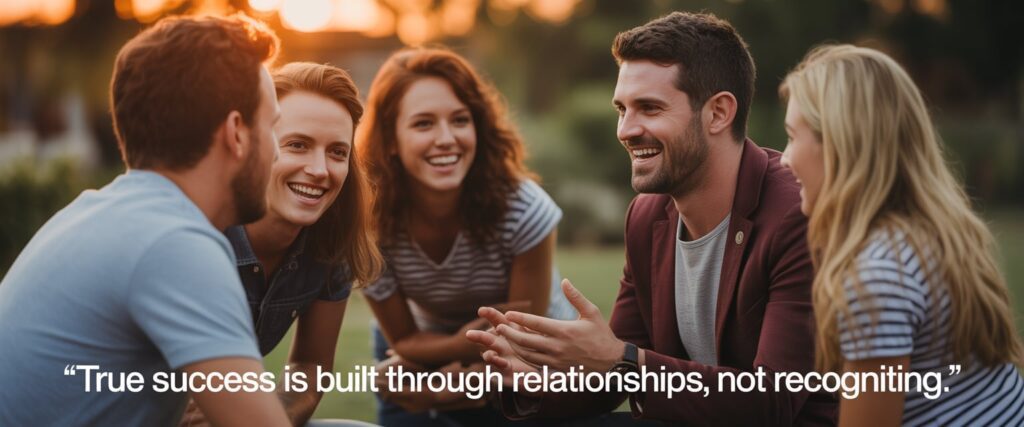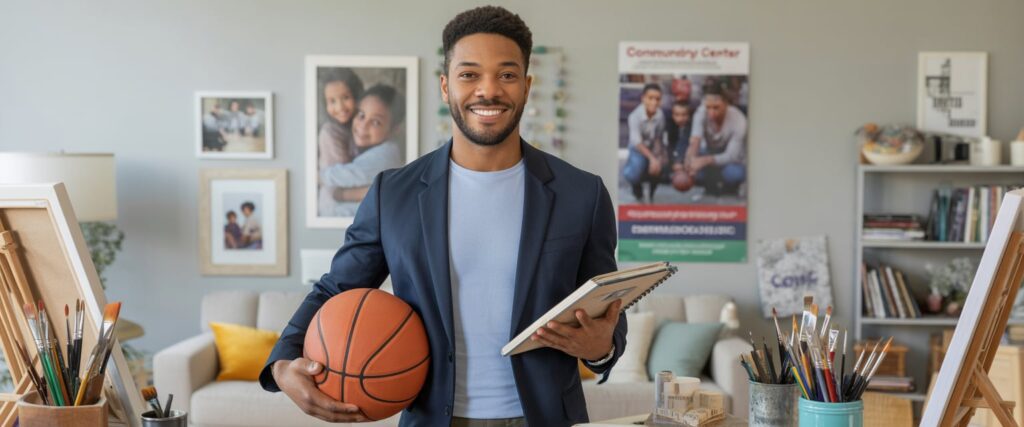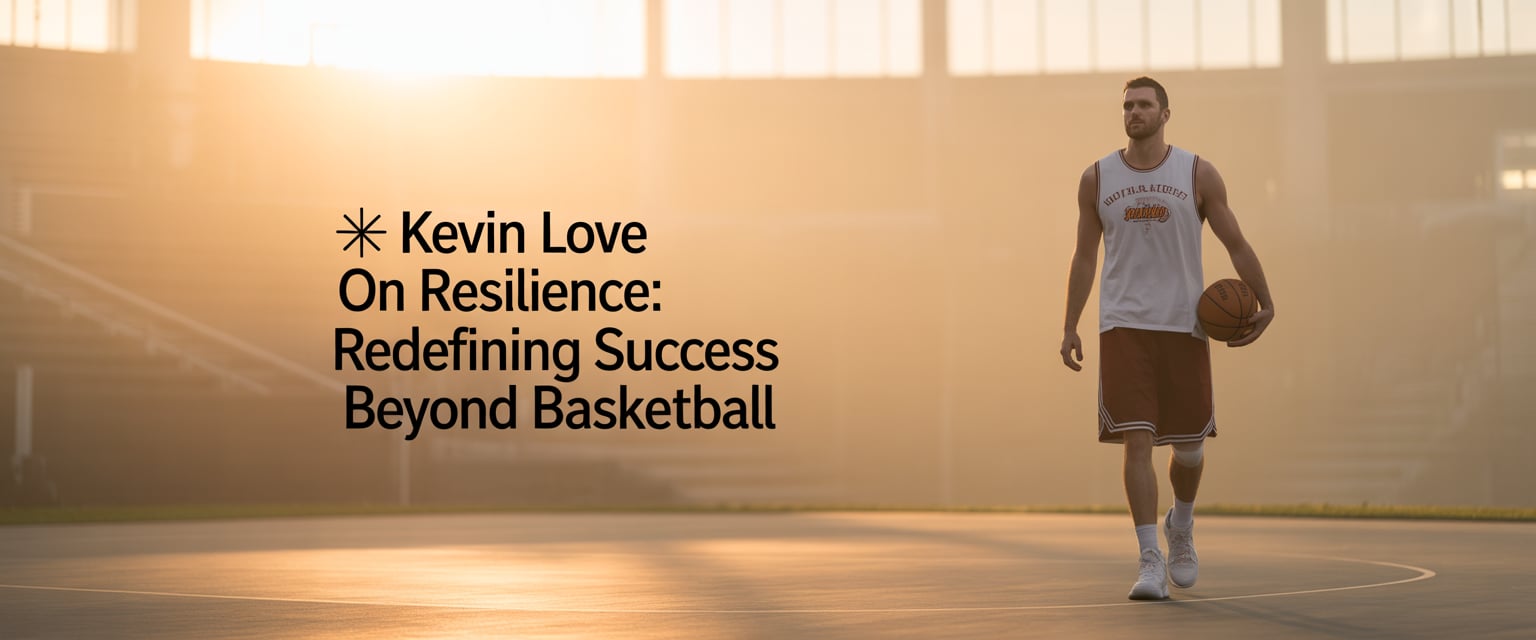In the world of professional sports, where success is often measured in championships and fame, Kevin Love on Resilience: Redefining Success Beyond Basketball stands as a powerful reminder that true victory starts within. For the five-time NBA All-Star, resilience means more than bouncing back from losses—it’s about emotional growth, balance, and the courage to redefine self-worth.
Through mindfulness, therapy, and the creation of the Kevin Love Fund, Love has transformed personal challenges into a movement that inspires athletes and everyday people alike. His story of strength, vulnerability, and purpose proves that mental performance is as vital as physical training. In every sense, Kevin Love on Resilience: Redefining Success Beyond Basketball reflects a modern definition of greatness—where impact, compassion, and emotional literacy matter more than trophies.
Kevin Love on Resilience
Kevin Love has learned that success isn’t just about points or trophies—it’s about balance, purpose, and mental strength. After years of pressure and performance expectations, he’s redefining what it means to win both on and off the court. He believes real success comes from resilience, emotional awareness, and building meaningful connections beyond basketball.
His approach to mental performance shows how structure, gratitude, and mindfulness can shape a stronger mindset. From pre-game routines that calm his thoughts to recovery habits that protect his well-being, Love proves that mental health is a skill worth training every day.

Through the Kevin Love Fund, he’s turning his lessons into action by teaching emotional literacy and self-compassion to young people. His message is simple yet powerful—resilience isn’t just bouncing back; it’s growing stronger through every challenge.
Resilience and Redefining Success
Kevin Love’s approach to success centers on purpose, relationships, and self-awareness. He focuses less on public recognition and more on meaningful impact, emotional balance, and human connection as the foundation of a fulfilling life.
Shifting from Fame to Impact
Kevin Love once measured success by statistics, contracts, and championships. Over time, he realized those achievements did not guarantee happiness or peace of mind. His focus shifted toward impact over image, emphasizing how his work could help others rather than how it looked from the outside.
He uses his platform to advocate for mental health and emotional education through the Kevin Love Fund (KLF). This shift reflects a deeper understanding that influence carries more long-term value than fame.
Love often shares that real success means leaving something positive behind. He encourages athletes and young people to define success by contribution and growth instead of comparison. This mindset helps reduce burnout and builds a stronger sense of purpose.
| Old Mindset | New Mindset |
|---|---|
| Fame and recognition | Impact and purpose |
| External validation | Internal fulfillment |
| Short-term wins | Long-term influence |
Relationships as the Core of Fulfillment
Love believes that relationships hold the greatest weight in a meaningful life. He values time with family and close friends as a way to stay grounded. These connections remind him that emotional support and shared experiences matter more than professional milestones.
He often points to small, consistent actions—listening, checking in, showing gratitude—as ways to strengthen relationships. These habits create trust and emotional safety, which improve both personal and professional well-being.

Through his advocacy, Love promotes emotional literacy as a tool for building stronger bonds. He teaches that understanding and expressing emotions clearly can prevent isolation and deepen connection. For him, fulfillment grows from empathy and genuine care, not status.
Lessons from the Harvard Study of Adult Development
Love often references the Harvard Study of Adult Development, which found that strong relationships are the most reliable predictor of lifelong happiness. He uses this research to reinforce his belief that connection, not achievement, sustains mental health and satisfaction.
He applies these lessons in his daily life by prioritizing communication and presence. Whether through family breakfasts or community work, he invests in moments that strengthen connection.
This perspective aligns with his broader message: resilience is built through relationships that support emotional growth. Love’s definition of success now centers on the quality of his connections and the positive effect he leaves on others.
Mental Performance Beyond the Court
Kevin Love focuses on how mental strength shapes both athletic performance and personal growth. He treats balance, structure, and gratitude as daily tools that support calm focus and emotional stability.
Mindset and Balance in Life
Love views mental performance as a lifelong practice, not just a game-day skill. He believes success depends on how well a person manages stress, relationships, and purpose outside of competition.
He keeps a steady routine that supports both body and mind. This includes consistent sleep, mindful breathing, and time spent with family. These habits help him stay grounded when pressure builds.
Key habits for balance:
- Regular mindfulness practice
- Clear boundaries between personal and professional life
- Quality time with loved ones
Love’s approach shows that balance creates the foundation for lasting performance and well-being.
Core Principles: Self-Awareness, Structure, Gratitude
Love identifies three principles that guide his mental health: self-awareness, structure, and gratitude.
Self-awareness helps him recognize when he feels anxious or distracted. By naming emotions early, he prevents them from taking control.
Structure gives his days rhythm and predictability. He schedules workouts, rest, and reflection time to maintain consistency. This structure reduces uncertainty and supports focus.
Gratitude keeps his mindset positive. He writes short notes or mentally lists what he appreciates each day. This practice helps him shift attention from stress to perspective.
| Principle | Purpose | Example Practice |
|---|---|---|
| Self-Awareness | Recognize emotions early | Daily reflection |
| Structure | Maintain consistency | Planned routines |
| Gratitude | Build positivity | Journaling or mental lists |
Together, these principles help him manage pressure and stay mentally steady.
Building Confidence Through Passions Outside Sports
Love believes real confidence develops when identity expands beyond basketball. He invests time in creative projects, philanthropy, and family life. These areas remind him that his value isn’t tied to performance.
Exploring interests outside sports allows him to grow new skills and perspectives. It also helps him stay motivated without relying on wins or losses for self-worth.

He encourages young athletes to explore hobbies, education, and community involvement. Doing so builds emotional resilience and confidence that lasts long after the game ends.
Strategies for Well-Being and Recovery
Kevin Love relies on structure, rest, and emotional awareness to maintain balance. His approach combines physical preparation, mindful recovery, and mental health tools that strengthen both focus and long-term resilience.
Pre-Game Routines for Mental Calm
Love begins each day with habits that help him stay centered. He starts with a cold shower to boost alertness, followed by breathwork to regulate stress. Balanced nutrition and hydration keep his energy steady throughout the day.
On game days, he eats breakfast with family, which helps him stay connected and grounded before competition. He listens to acoustic or calming music to steady his heart rate and clear his thoughts.
These routines create consistency, which reduces anxiety and supports mental readiness. His focus stays on presence and balance, not perfection or outcome.
The Power of Rest and Sleep
Love treats sleep as essential recovery, not a luxury. He aims for consistent sleep schedules and limits screen time before bed to improve rest quality.
When full sleep isn’t possible, he uses meditation and mindful breathing to calm his body and mind. Short rest periods still help him reset and maintain focus.
He learned that neglecting rest leads to poor concentration and emotional strain. By protecting his recovery time, he improves both performance and mood. Better rest allows him to handle stress with more patience and control.
| Rest Practice | Purpose |
|---|---|
| Sleep routine | Restores energy and focus |
| Mindful breathing | Reduces tension |
| Screen limits | Improves sleep quality |
Therapy and Self-Compassion
Love’s early career was marked by pressure to perform and a fear of failure. Therapy helped him understand those patterns and develop healthier coping methods.
He learned to practice self-compassion, treating mistakes as learning moments instead of personal flaws. This shift improved his confidence and emotional stability.
Regular therapy sessions also strengthened his self-awareness, allowing him to identify stress triggers. He emphasizes that seeking help is a sign of strength, not weakness. These tools give him a clearer mindset both on and off the court.
Emotional Regulation Practices
Love believes emotional regulation is a skill that can be learned and practiced. He uses breathing exercises, journaling, and guided meditation to manage stress and maintain focus.
He also encourages others to name and understand their emotions instead of suppressing them. This awareness helps prevent emotional buildup and supports clear communication.
Through his foundation, he promotes emotional literacy education for young people. Teaching these skills early helps build resilience and healthier responses to pressure, failure, and change.
The Kevin Love Fund and Early Emotional Education
Kevin Love’s work through the Kevin Love Fund (KLF) focuses on mental health, emotional education, and reducing performance pressure. The fund supports programs that teach young people how to manage stress, express emotions, and build confidence through self-awareness and compassion.
Promoting Mental Health Awareness
The Kevin Love Fund raises awareness about mental health by sharing real stories and practical tools for emotional well-being. It partners with schools, nonprofits, and sports organizations to make mental health education more accessible.
Love uses his own experiences with anxiety and depression to help others understand that seeking help is a sign of strength. By being open about his challenges, he reduces stigma and encourages honest conversations.

KLF also funds workshops and campaigns that teach people how to recognize signs of emotional distress. These programs focus on early intervention and community support.
Key goals include:
- Normalizing mental health discussions
- Providing youth-friendly education materials
- Encouraging peer and family communication
Reducing Pressure on Student-Athletes
KLF addresses the stress many student-athletes face from competition and expectations. The program teaches them to value effort, growth, and balance rather than perfection or constant achievement.
Through school partnerships, KLF introduces lessons on self-compassion and emotional regulation. Students learn to manage pre-game nerves, handle losses, and separate their identity from performance.
Love’s message emphasizes that success in sports should not come at the cost of mental health. Coaches and educators are trained to recognize burnout and promote rest and recovery as part of athletic development.
A simple framework used in KLF sessions:
| Focus Area | Skill Taught | Outcome |
|---|---|---|
| Self-Awareness | Identifying emotions | Improved focus |
| Self-Compassion | Positive self-talk | Reduced anxiety |
| Balance | Setting boundaries | Sustainable motivation |
Emotional Literacy for Children
KLF’s emotional literacy curriculum introduces core emotional skills to elementary school students. It helps children identify, name, and manage their feelings through stories, reflection, and group discussions.
Love believes that emotional understanding should start early so children can handle disappointment, conflict, and change in healthy ways. The lessons use simple language and relatable examples to make emotional topics approachable.
Teachers receive structured guides and activity plans to reinforce daily practice. Students learn empathy by recognizing how their actions affect others.
This early foundation builds resilience and prepares children to face future challenges with confidence and calm awareness.
Teaching Self-Expression and Coping Skills
KLF programs encourage children and teens to express emotions through art, writing, and conversation. These creative outlets allow them to process stress and communicate honestly without fear of judgment.
Workshops often include journaling, drawing, and guided breathing exercises. Each activity focuses on helping participants understand what they feel and how to respond constructively.
Love’s approach highlights that coping skills are learned behaviors, not traits people are born with. By practicing mindfulness and reflection, students develop tools to manage frustration, sadness, or pressure.
Examples of coping strategies taught:
- Deep breathing before stressful moments
- Writing down emotions instead of suppressing them
- Talking to a trusted adult or peer
As Kevin Love continues to evolve beyond the boundaries of the game, his journey teaches a universal truth: resilience is not about perfection but about persistence with purpose. His work through the Kevin Love Fund redefines how athletes and young people approach mental well-being, proving that emotional intelligence is the cornerstone of real success.
By promoting balance, mindfulness, and empathy, Love’s legacy extends far beyond the hardwood court. Kevin Love on Resilience: Redefining Success Beyond Basketball is more than a headline—it’s a philosophy that challenges the way we measure achievement.
In embracing this mindset, Love shows that the greatest wins in life come not from applause or awards, but from connection, compassion, and the courage to grow stronger through every challenge. Truly, Kevin Love on Resilience: Redefining Success Beyond Basketball is a story of redefining greatness from the inside out.
